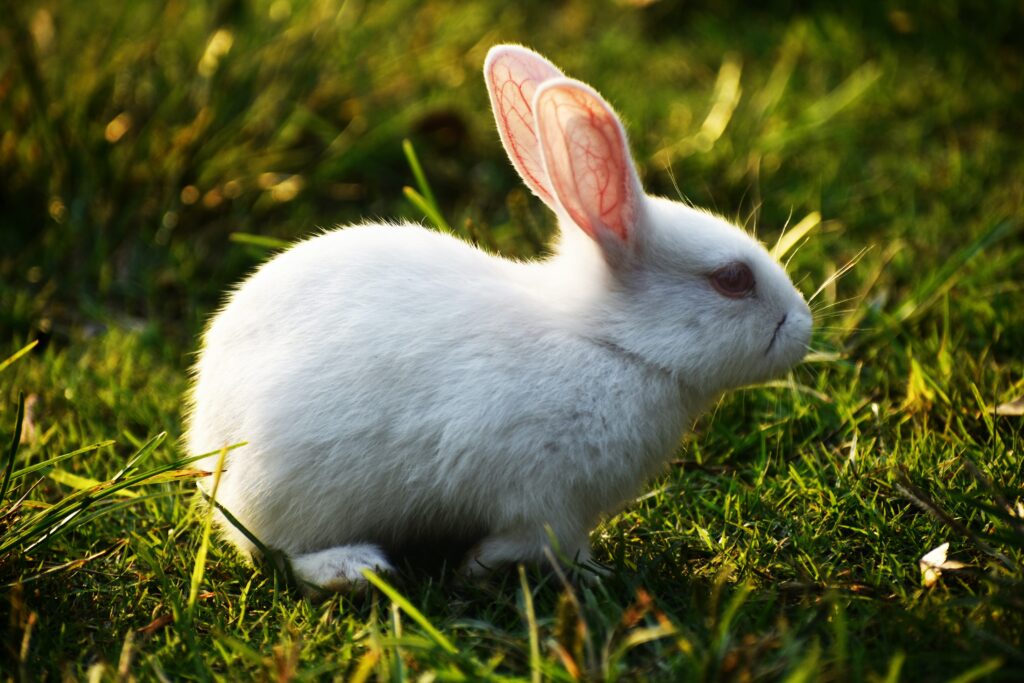Introduction
Rabbits are a popular pet, but it’s important to be aware of the potential diseases they can get, therefore, I will be sharing some common rabbit diseases that your rabbit may get.
How to Start a Rabbit Farm: A Comprehensive Guide

There are a few diseases that are particularly common in rabbits, and it’s important to know what they are and how to prevent them. In this post, we’ll cover the most common rabbit diseases and how to prevent them.
What Are the Most Common Rabbit Diseases?
Just like with any other pet, it’s important to be aware of the most common rabbit diseases. That way, you’ll know how to prevent them and what to do if your bunny falls ill.
There are a few diseases that pet rabbits are particularly susceptible to, including myxomatosis, calicivirus, and E. cuniculi. Let’s take a closer look at each one.
Myxomatosis is a virus that causes severe respiratory problems in rabbits. It can be fatal, so it’s important to get your bunny vaccinated against it if you live in an area where the disease is prevalent.
The Business Plan for Your Rabbit Farm | 4 Things Must be Included
Calicivirus is a highly contagious virus that can cause severe diarrhea, dehydration, and even death in rabbits. There is no cure, so the best way to protect your bunny is by vaccinating him against it.

E. cuniculus is a parasite that can cause serious neurological problems in rabbits. It’s treated with antibiotics, but it’s important to get your bunny tested for it regularly, especially if he’s been sick or has been exposed to other sick bunnies.
What Are the Symptoms of These Diseases?
So you’ve just brought home your new bunny friend and you’re excited to start your new life together. But before you do, it’s important to know about the most common rabbit diseases and how to prevent them.
The most common diseases in rabbits are Pasteurella, Myxomatosis, and Calicivirus. Pasteurella is a bacterial infection that affects the respiratory system, and symptoms include sneezing, coughing, and labored breathing. Myxomatosis is a viral disease that causes eye and nose discharge, swelling of the head and neck, and eventual blindness and death. And Calicivirus is a highly contagious virus that causes severe diarrhea, dehydration, and often death.
But don’t worry! There are things you can do to help prevent your bunny from getting sick. The most important thing is to keep their environment clean and free of bacteria. Make sure their food and water dishes are clean and change their water regularly. You should also have them vaccinated against Myxomatosis and Calicivirus.
How Can I Prevent My Rabbit From Getting These Diseases?

There are a few things you can do to help keep your bunny healthy and free from diseases.
The most important thing is to make sure your rabbit has a healthy diet. Feed him fresh vegetables and hay, and limit his intake of processed foods.
Also, make sure your rabbit gets plenty of exercises. A lack of exercise can lead to obesity, which can make your rabbit more susceptible to diseases.
Finally, get your bunny vaccinated and take him to the vet for check-ups regularly. This will help catch any diseases early on and give you the best chance of curing your rabbit.

What Should I Do if My Rabbit Does Get Sick?
If your rabbit does get sick, the most important thing is to take it to the vet as soon as possible. Many rabbit diseases are treatable, but they can only be cured if they’re caught early.
The vet will give your rabbit the best chance for a full recovery, and may even be able to save it if the disease is caught early enough. However, some diseases are fatal, so it’s always best to be proactive and make sure your rabbit is up-to-date on its vaccinations.
How Can I Tell if My Rabbit Is Healthy?
You might be wondering how you can tell if your rabbit is healthy. Well, there are a few things you can look out for.
Rabbits like to groom themselves a lot, so if they’re not doing this as often as usual, it might be a sign that something is wrong. Also, take a look at their droppings—if they’re smaller than usual or there’s blood in them, then that’s not a good sign. And finally, keep an eye on their energy levels; if your rabbit seems lethargic or isn’t eating or drinking as much as usual, then you should take them to the vet.
The good news is that most rabbit diseases can be prevented by keeping your rabbit’s environment clean and giving them regular checkups at the vet. So make sure you’re doing those things, and you’ll significantly reduce the chances of your rabbit getting sick.
Conclusion
So, what are the most common rabbit diseases? The most common diseases that rabbits can contract are:
1. Myxomatosis
2. Viral Haemorrhagic Disease
3. Calicivirus
4. Encephalitozoon cuniculi
5. Pasteurella multocida
6. Streptococcus pneumonia
7. Staphylococcus aureus
8. Salmonella Enteritidis
9. Clostridium perfringens
10. Bacillus thuringiensis var albertae
As you can see, there are many different types of rabbit diseases, and some are more deadly than others. It’s important to be aware of these diseases and know how to prevent them. One of the best ways to do this is to have your rabbit vaccinated against the most common diseases. You can also keep your rabbit’s living environment clean and free of pests, which will help reduce the spread of disease. Finally, make sure you’re providing your rabbit with a healthy diet and plenty of fresh water.
If you’re concerned about your rabbit’s health, take him or her to the vet for a check-up. The vet can test for different diseases and provide treatment if necessary. Remember, early detection is key in preventing serious health problems in rabbits.



